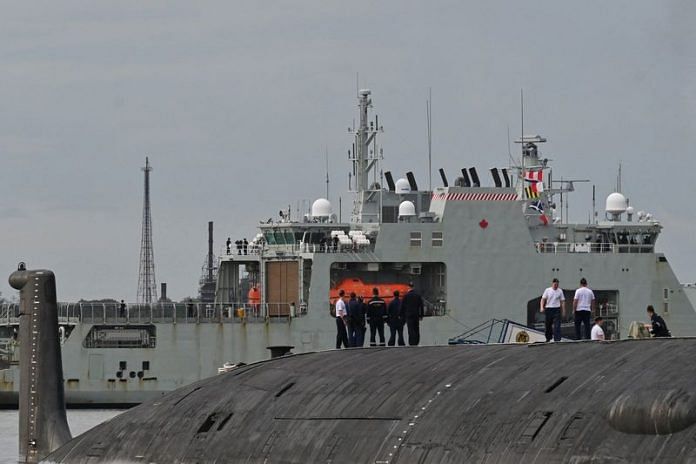HAVANA (Reuters) – A Canadian navy patrol ship sailed into Havana early on Friday, just hours after the United States announced a fast-attack submarine had docked at its Guantanamo naval base on Cuba, both vessels on the heels of Russian warships that arrived on the island earlier this week.
The confluence of Russian, Canadian and U.S. vessels in Cuba – a Communist-ruled island nation just 160 km (100 miles) from Florida – served up a reminder of old Cold War tensions and of current fraught ties between Russia and Western nations over the Ukraine war.
However, both the U.S. and Cuba have said the Russian warships pose no threat to the region. Russia has also characterized the arrival of its warships in allied Cuba as routine.
The Admiral Gorshkov frigate and the nuclear-powered submarine Kazan, half submerged with its crew on deck, sailed into Havana harbor on Wednesday after conducting “high-precision missile weapons” training in the Atlantic Ocean.
Canada`s Margaret Brooke patrol vessel began maneuvers early on Friday to enter Havana harbor, part of what the Canadian Joint Operations Command called “a port visit…in recognition of the long-standing bilateral relationship between Canada and Cuba.”
Hours earlier, the U.S. Southern Command said the fast-attack submarine Helena had arrived on a routine port visit to Guantanamo Bay, a U.S. naval base on the southeast tip of the island around 850 km (530 miles) from Havana.
“The vessel’s location and transit were previously planned,” Southern Command said on X.
A Canadian diplomat characterized the Margaret Brooke`s arrival as “routine and part of long-standing cooperation between our two countries”, adding it was “unrelated to the presence of the Russian ships.”
Russia and Cuba were close allies under the former Soviet Union and tensions with Washington over Communism in its “backyard” peaked with the Cuban Missile Crisis of 1962. Moscow, which has maintained ties with Havana, has questioned the apparent nervousness of the West over the warships this week.
When asked what signal Moscow was sending, Russian Foreign Ministry spokeswoman Maria Zakharova said on Thursday the West never appeared to take notice when Russia sent signals through diplomatic channels.
“As soon as it comes to exercises or sea voyages, we immediately hear questions and a desire to know what these messages are about,” Zakharova said. “Why do only signals related only to our army and navy reach the West?”
The Russian warships are expected to remain in Havana harbor until June 17.
(Reporting by Dave Sherwood; Additional reporting by Marc Frank; Editing by Frances Kerry)
Disclaimer: This report is auto generated from the Reuters news service. ThePrint holds no responsibilty for its content.



